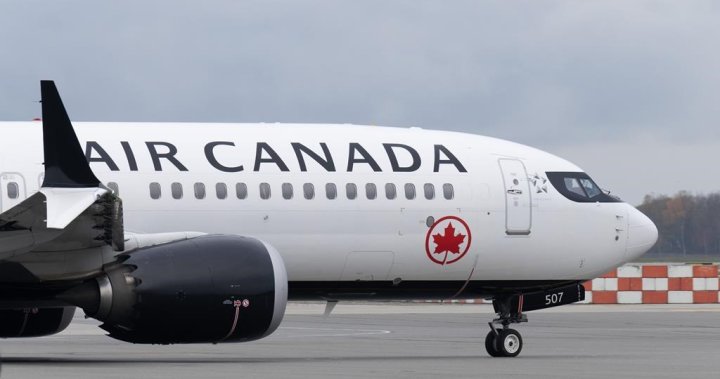Air Canada Introduces New Seat Change Fees for Basic Economy Fares
Air Canada has implemented a new fee structure for passengers traveling on basic economy fares within Canada and to select sun destinations. Effective immediately, passengers who opt for the most economical fare class will still receive a complimentary seat assignment during the check-in process, provided they haven’t pre-selected a seat. However, any subsequent changes to this assigned seat will now incur a fee. This applies to seat changes made through online check-in, the Air Canada mobile app, or airport kiosks. The new policy comes amidst a series of changes implemented by the airline this month, drawing criticism from both passengers and the federal government.
This change in seat assignment policy coincides with a broader revision to Air Canada’s baggage allowance for basic economy fares. For tickets booked on or after January 3rd, 2024, for travel within Canada, to and from the United States (including Hawaii and Puerto Rico), and to and from sun destinations such as Mexico, Central America, and the Caribbean, carry-on baggage is no longer included in the basic fare. Passengers on these routes will now need to pay an additional fee to bring a carry-on bag. However, those connecting to international destinations beyond these specified regions will still be permitted a complimentary carry-on bag.
The announcement of these changes in December 2023 sparked immediate concern from Transport Minister Anita Anand, who expressed her reservations about the potential impact on Canadian travelers. She highlighted the added financial burden on passengers who would now have to pay extra to bring a carry-on bag, a common practice for air travel. Despite the introduction of the new seat change fee, Air Canada maintains its commitment to accommodating passengers requiring assistance and families traveling together. The airline’s existing policy prioritizes seating companions together, and this practice will continue under the new fee structure.
The introduction of these new fees represents a shift in Air Canada’s pricing strategy, potentially impacting the overall cost of air travel for budget-conscious passengers. While basic economy fares remain an option for those seeking the lowest possible ticket price, the added costs for seat changes and carry-on baggage may diminish the overall value proposition. Passengers will need to carefully weigh the trade-offs between cost and convenience when selecting their fare class. The implications of these changes on passenger behavior and the competitive landscape of the airline industry remain to be seen.
The broader context of these changes involves the evolving dynamics of the airline industry, where airlines are increasingly unbundling services and charging for previously complimentary amenities. This trend allows airlines to offer lower base fares while generating revenue from ancillary services. However, it can also lead to increased complexity and potential confusion for passengers, who must navigate a more intricate pricing structure. The long-term effects of this approach on passenger satisfaction and airline profitability are still being assessed. Regulatory bodies and consumer advocacy groups are likely to continue monitoring these developments closely.
In summary, Air Canada’s new seat change fees for basic economy passengers represent another step in the ongoing evolution of airline pricing strategies. While these changes provide airlines with greater revenue flexibility and offer passengers more choices, they also introduce new considerations for travelers. The implications of these changes for the future of air travel and the relationship between airlines and passengers warrant continued observation and analysis. The interplay between cost, convenience, and consumer expectations will shape the future of the airline industry.

